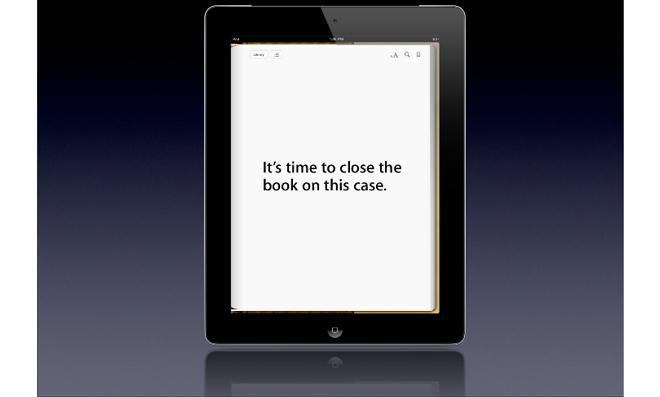Days before an appeals court will revisit Apple's iBooks price fixing case, the head of the company's digital content business has spoken out on why Apple continues to fight the government's antitrust allegations, calling it a "fight for the truth."
In Eddy Cue's first-ever interview on the price fixing case, the iBooks chief spoke with Fortune about the upcoming Dec. 15 appearance before a federal appeals court. It's there that Apple hopes it will be able to overturn a verdict that found it and book publishers guilty of a price fixing conspiracy.
If Apple can win the appeal, it will pay no penalty. But if it loses, the iPad maker has agreed to a conditional settlement that will see it pay $450 million in damages and attorney fees.
Apple continues to fight the case because of principle, Cue said. Although Apple's deals with book publishers did cause some e-book prices to rise, he said that wasn't as a result of illegal collusion.
"We feel we have to fight for the truth," Cue said. "Luckily, (CEO) Tim (Cook) feels exactly like I do, which is: You have to fight for your principles no matter what. Because it's just not right."
Under negotiations led by Cue, Apple and book publishers opted to switch to a so-called "agency" pricing model. That prevented content owners from being able to sell the same titles at a lower price elsewhere, without offering the same price on Apple's iBooks platform — a "most favored nations" clause.
In contrast, the e-book industry prior to the launch of the first iPad was under the "wholesale model" preferred by Amazon. In that model, resellers such as Amazon had the power to set prices, selling titles at or below cost if they chose to do so.
Late Apple cofounder Steve Jobs introduces iBooks iPad app and partner publishers in 2010. | Source: AppleCue told Fortune that even before negotiations with Apple took place, publishers were openly saying they wanted to raise prices on books, which they felt were being sold for too little under the wholesale model. He also said that some book prices went down as a result of the launch of Apple's iBooks, because it resulted in more competition in the e-books market against Amazon's Kindle platform.
"Is it a fact that certain book prices went up? Yes," Cue said. "If you want to convict us on that, then we're guilty. I knew some prices were going to go up, but hell, the whole world knew it, because that's what the publishers were saying."
And when asked if he could rewrite history and do anything differently in his e-book negotiations, Cue said he'd still use the same approach.
"I'd just take better notes," the Apple executive quipped.
As a result of the U.S. government's ruling, Apple is saddled with an injunction that bars it from entering into any unsavory deals with publishers, and the company is under the watch of antitrust monitor Michael Bromwich. The iPad maker's appeal was formally filed in February of this year, asking for a dismissal or a retrial.
In its appeal, Apple has pointed out Amazon's continuing dominant position in the e-book market. At the time of the iBookstore's launch, Amazon accounted for nine out of every ten e-book sales.
Apple's agency model contracts were central to the Department of Justice's case. The government argued that Amazon's wholesale model was negatively impacted as a result of Apple's deals, which ultimately trickled down to consumers as the Internet retail giant was no longer able to compete on price.
 Neil Hughes
Neil Hughes







-m.jpg)






 Chip Loder
Chip Loder
 Wesley Hilliard
Wesley Hilliard
 Marko Zivkovic
Marko Zivkovic

 Christine McKee
Christine McKee
 Amber Neely
Amber Neely

 Malcolm Owen
Malcolm Owen








69 Comments
Another thread designed to incite readers... Happy holidays, everyone!
How’s about we go crash Amazon’s stock?
[quote name="Tallest Skil" url="/t/183685/apples-eddy-cue-speaks-out-on-ibooks-price-fixing-ruling-its-just-not-right#post_2646586"]How’s about we go crash Amazon’s stock? :grumble: [/quote] I'd like to know who is supplying Wall Street with the coke and hookers...does Amazon deliver those also?
[quote name="SpamSandwich" url="/t/183685/apples-eddy-cue-speaks-out-on-ibooks-price-fixing-ruling-its-just-not-right#post_2646585"]Another thread designed to incite readers... Happy holidays, everyone![/quote] ...and please click away! :D
For free, if you're a member of Amazon Prime